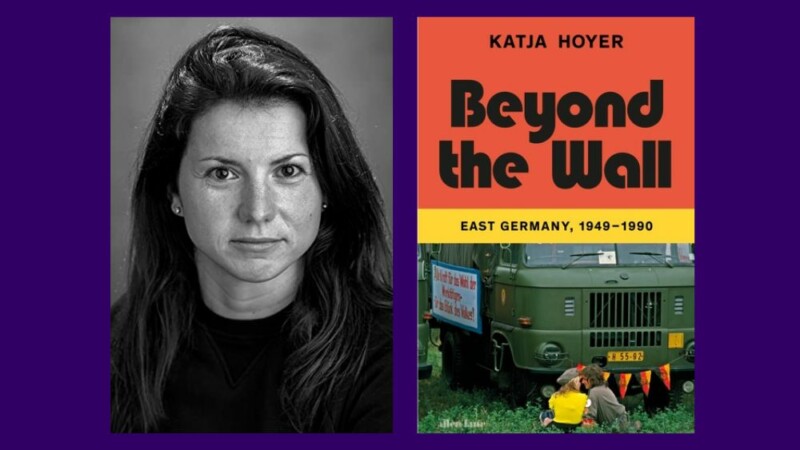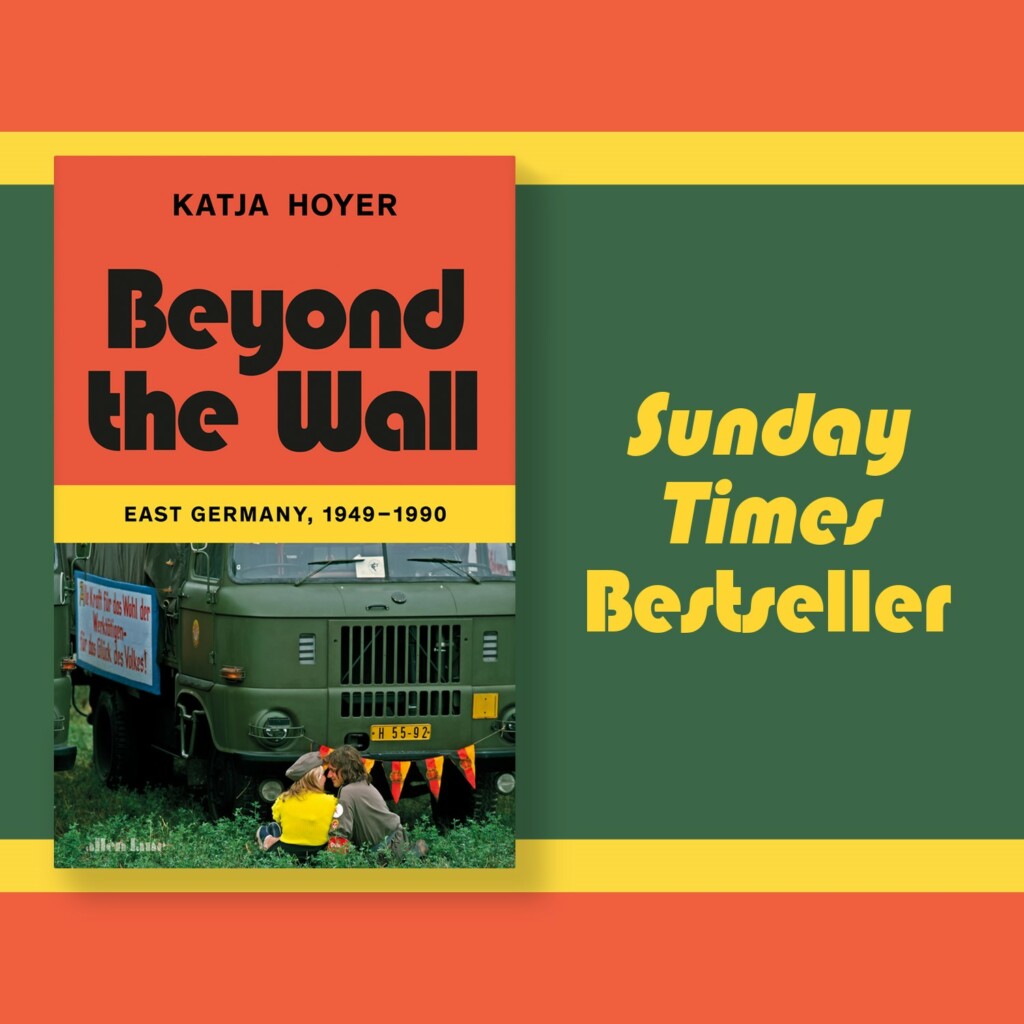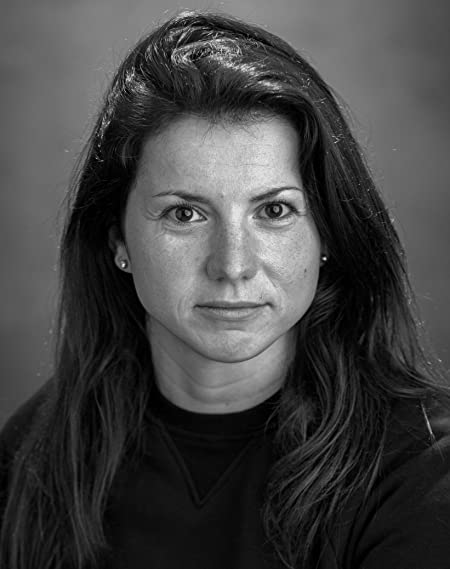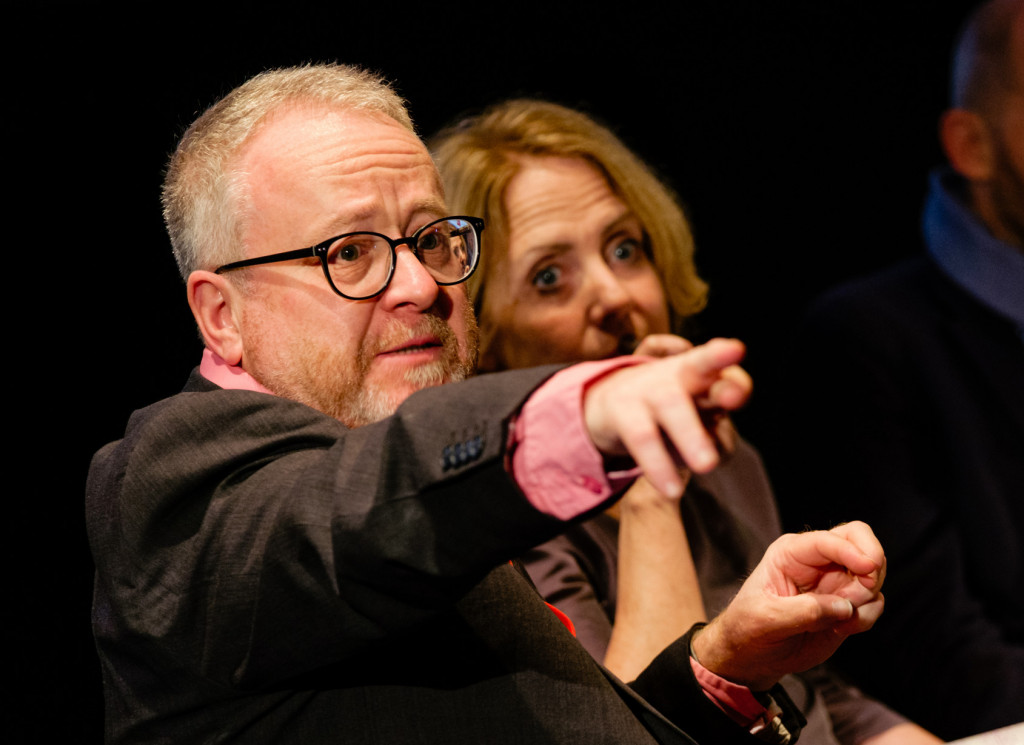What Was East Germany Really Like? Katja Hoyer

Share this
The Berlin Wall fell in 1989 and East Germany ceased to exist the following year. For over 40 years, the GDR had built and developed its own identity, underpinned by socialist ideology. Historian and journalist Katja Hoyer – just four years old when her birthplace, East Germany, disappeared overnight – peels back the Iron Curtain to offer a new history of the East Germany we think we know and understand.
While the stories we remember and have ultimately ended up shaping our impressions of East Germany are those of oppression and hardship, this took place against the backdrop of stability that most people there craved for after many decades of crises and war, with improved housing, access to education, work and care, growing access to consumer goods including Levi jeans; and culture.
The state catered to citizens’ needs, while also subjecting them to constant state surveillance and the enduring threat of the Stasi secret police. In her new book, Beyond the Wall: East Germany, 1949-1990, Hoyer draws on interviews, letters, and records to present a different history of East Germany which explores these many paradoxes. Hoyer argues that East Germany was a place more dynamic than the portrayals and caricatures painted by the West, and perhaps we need to re-evaluate some of the ‘truths’ we think we know about East Germany.
In this discussion with Festival of the Future City director Andrew Kelly, Hoyer looks at, amongst others: the history of East Germany and West Germany; German communists often tragic relationship with the Soviet Union with the rise of Nazism; the Stalinist past of East German leaders; how East Germany grew from 1949; the attempts to stop people leaving and the erection of the Berlin Wall; and the eventual collapse of the GDR and what followed.
If you’ve enjoyed this, please consider subscribing to Bristol Ideas on YouTube. It’s the best way to receive instant updates and keep track of what we’re up to and the conversations we’re having. Plus, it helps Bristol Ideas monetize our content from YouTube and keep these conversations free for audiences to access. Subscribe here.
Read a transcript of this conversation
This interview has been lightly edited for length and clarity. The full version of the interview is in the recording.

Katja Hoyer’s Beyond the Wall: East Germany, 1949-1990 is published by Allen Lane.

Katja Hoyer is a German-British historian, journalist and the author of the widely acclaimed Blood and Iron. A visiting Research Fellow at King’s College London and a Fellow of the Royal Historical Society, she is a columnist for the Washington Post and hosts the podcast The New Germany together with Oliver Moody. She was born in East Germany and is now based in the UK.

Andrew Kelly is Director, Bristol Ideas. He is a visiting professor at the University of the West of England and has written or edited 20 books on subjects ranging from film and cinema to aviation and Bristol’s rich cultural history.